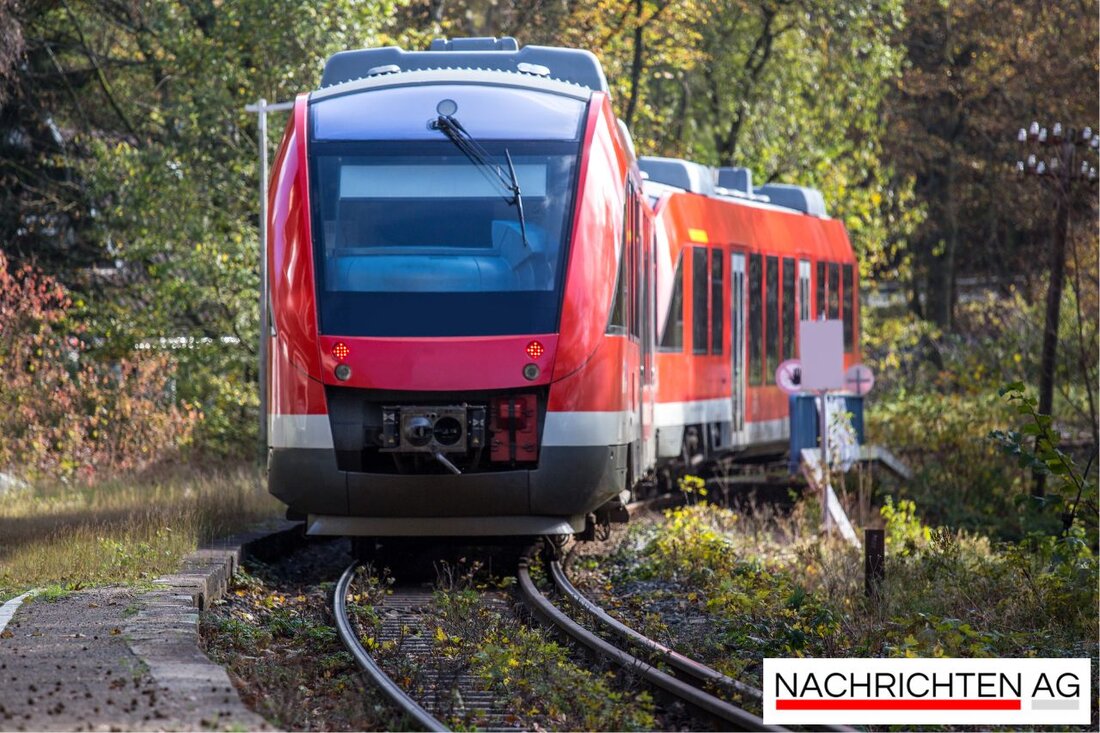Battery trains are in danger: Saxony is withdrawing from financing!
Neustadt is facing changes in local transport: from 2031, diesel trains are to be replaced by battery-powered trains. Investments are necessary.

Battery trains are in danger: Saxony is withdrawing from financing!
The Dresden Transport Association (VVO) is planning a fundamental renewal of the diesel network, which includes, among other things, the linesRB72, RB71, RB33andS8 (RB34)includes. The goal is to2031Replacing diesel trains with battery-powered electric trains. This decision comes at a time when the discussion about environmentally friendly alternatives to conventional diesel trains is gaining momentum. Originally, hydrogen trains were considered as a possible solution, but this idea was rejected, as MeiDresden reports.
The current VVO association meeting recently discussed the use of battery-powered trains. But there is a downer in the planning: planned cuts in investments in the Free State's budget are making many in the transport association nervous. “Joint solutions for sustainable local transport are necessary,” says Burkhard Ehlen, managing director of VVO, who emphasizes that the financial framework needs to be clearly improved.
Test drives and infrastructure
In September2020A test drive has already taken place with a battery-powered train, the Desiro ML ÖBB Cityjet eco from Siemens, from Dresden to Königsbrück. This test project is intended to create the basis for future investment funding from the federal and state governments
. In order to ensure the integration of these new technologies, extensive investments in the infrastructure are necessary. Unfortunately, Saxony has withdrawn from the financing, which puts additional strain on the plans.
Particularly in the discussion about alternative drive systems, it becomes clear what importance hydrogen trains could have in the future of the transport sector. According to Tagesschau, Deutsche Bahn sees great potential in hydrogen trains to reduce CO2 emissions in the transport sector, but these models are still at the beginning of their development journey.
Germany currently produces most of its hydrogen from fossil fuels, which is causing the CO2 balance to wobble. It remains to be seen how the transition to “green” hydrogen will be advanced. The federal government has set itself the goal of reducing the proportion of hydrogen produced by electrolysis2030to increase to 50%. Mobile hydrogen filling stations should also ensure that trains can be refueled quickly and thus create the necessary infrastructure.
Mission climate goals
The urgency of switching to environmentally friendly means of transport is underpinned by Germany's climate goals. The transport sector contributes to 23% of CO2 emissions worldwide, and up to2030The aim is to reduce emissions by 40%. Until2045Germany is even striving for climate neutrality. Already74%of train kilometers in large cities such as Berlin and Brandenburg are powered by electricity, which shows how important public transport is for the overall emissions balance.
When reversing drive types, a distinction is made between different technologies:Hydrogen trains, which use a zero-emission energy source, andBattery trainsthat store electrical energy. These new drive technologies could be crucial for the future transport transition. A pilot project on the Heidekrautbahn, thatfrom December 2024to start, will introduce hydrogen trains that will be produced locally. These innovative approaches could play a key role in the effort to achieve climate-friendly transport, as explained on [VBB Impuls](https://impuls.vbb.de/verkehrswende-wir-fahr-vbb/klimaneutralitaet-im-oepnv-wie-funktioniert-sie- aktuell/).
The coming period will show how the planned restructuring of the transport network in the Dresden region will be implemented and to what extent the commitment to more sustainable local transport can be advanced.

 Suche
Suche
 Mein Konto
Mein Konto